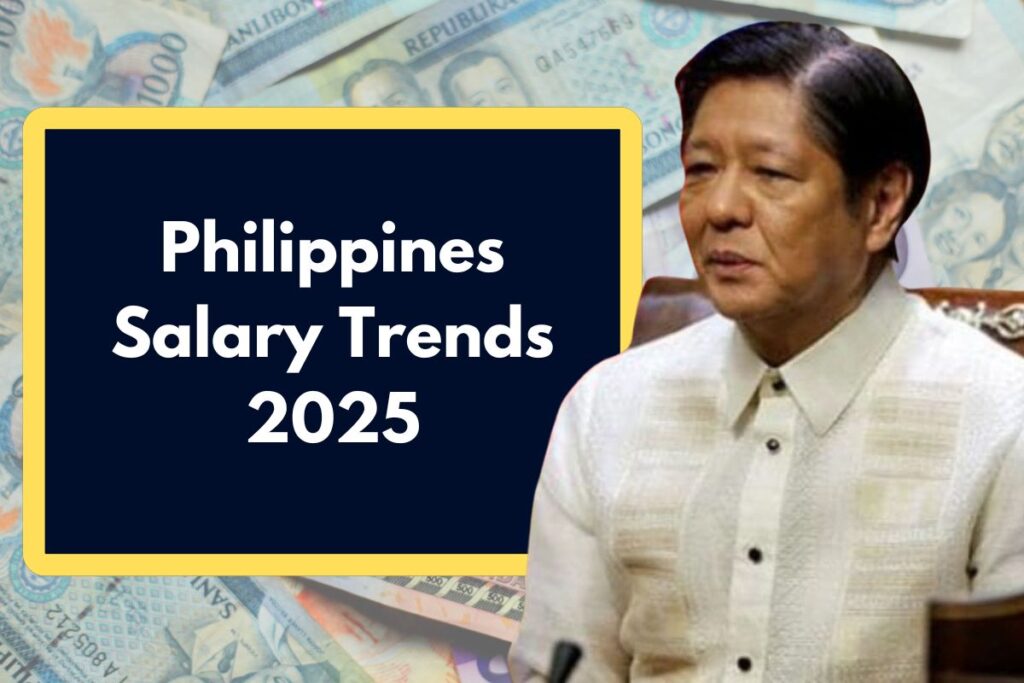Company’s seeking to access a highly qualified and economical labor are increasingly turning to the Philippines. With a population of more than 114 million and an economy that is expanding quickly, the nation has a large talent pool for a variety of sectors, including healthcare, banking, technology, and customer service. Employers across the world like its labor because of its high level of education, flexibility, and great command of English.
Expectations for salaries and labor market trends are constantly changing as the nation moves closer to upper-middle class status. To guarantee fairer, competitive, and long-term remuneration, employers recruiting in the Philippines must be aware of salary standards. Even while wages are still far lower than in Western nations, workers may however maintain a respectable standard of living due to the affordability of living.
Philippines Salary Trends 2025
Company’s may learn more about what to anticipate when recruiting in the Philippines by reading this page, which reviews Philippines Salary Trends 2025 across important industries. Knowing how salaries differ by function, experience level, and region can help you make well-informed decisions whether you are trying to grow your staff or assessing a new opportunity. Workers in the Philippines are anxious to find out if they will be receiving a salary raise as 2025 gets underway. A number of variables, such as governmental regulations, inflation rates, industry performance, and economic conditions, affect wage adjustments.
This post provides a thorough analysis of anticipated wage increases and the main factors influencing them, in case you are wondering if your salary will rise this year. Salary increases are anticipated to be between 5% and 7%, contingent on industry and economic conditions. Salary rises in high-growth industries like technology, finance, healthcare, and e-commerce are probably going to be the most attractive. Salary changes are heavily influenced by government salary policy, inflation, and business profitability.
Expected Salary Growth in 2025
According to industry analysts, salaries in the Philippines would rise somewhat, with variances based on business plans and sector success. Market projections indicate that, depending on factors like business expansion, industry needs, and economic stability, the average salary increase will fall between 5% and 7%.
Due to their growth and the growing need for qualified workers, several industries like technology, finance, healthcare, and e-commerce are expected to see above-average wage changes. On the other hand, industries such as tourism and hospitality that are currently recuperating from economic downturns can see slower wage increases.

Salary Increase System for 2025
To guarantee fairer and gradual salary increases for government workers, the Philippine government has put in place the Philippines Salary Tranche 2025, a methodical structure for wage adjustments. The Salary Standardization Law of 2019 governs this organized program and requires salary increases to be made gradually over a four-year period.
Improving public sector employees’ financial stability while preserving economic equilibrium is the goal. The government hopes to increase worker motivation, draw in qualified specialists, and advance fair salary distribution by launching this program. The new wage system makes sure that performance, experience, and job status all play a role in determining raises.
Key Factors Affecting Salary Adjustments
Inflation and Cost of Living
Inflation is one of the main causes of salary increases. Employees demand more earnings to maintain their quality of life when the cost of products and services rises. Changes in inflation rates in 2024 immediately impacted consumer expenditures. Company’s could feel pressured to raise salary in 2025 if inflation stays high in order to assist workers in keeping up with the growing cost of living.
Government Wage Policies
Periodically, the Philippine government evaluates and modifies the minimum wage, especially in major cities like Metro Manila. Labor organizations fought for fair remuneration and higher earnings in 2024. Company’s will have to comply with new wage standards if they are passed in 2025, which would result in salary rises, especially for low-paid and entry-level employees.
Industry-Specific Expansion
Rapidly expanding industries typically provide competitive salary increases. For example, the growing technology industry is driving up need for cybersecurity and IT specialists. In a similar way, one of the biggest employment sectors in the nation, business process outsourcing (BPO), is anticipated to change wages in order to retain talent in the face of growing international competition.
Company Budget and Profitability
Not all companies have the funds to increase salaries significantly. In comparison to small and medium-sized Company’s (SMEs), larger organization, specially multinational corporations (MNCs), often provide larger compensation changes. Company’s that are having financial difficulties could adopt a more cautious stance, giving performance-based raises priority or just modest salary increases.
Location
In the Philippines, location has a significant role in determining salary levels, because it is home to large financial organizations, IT parks, and global firms, Metro Manila, the economic center, offers the highest salary. Due to increased cost of living and the concentration of company’s, the average salary in Manila is 30–50% more than in provincial locations.
Competitive salaries are also offered by other large cities like Cebu and Davao, especially in the IT, tourist, and outsourcing (BPO) industries. However, because there are fewer work options and lower living expenses in rural and less developed locations, earnings there are often much lower.
| Official Website | Click Here |
| Homepage | KeralaCoBank.Com |
Samarth Choudhary is a Chief Editor at keralacobank.com. He has overall editorial experience of 10 years in online media. He has completed his graduation from University of California and masters in Finance from University of Dallas in year 2010. His major interest and expertise is in Finance, Taxes, Government Aid and Schemes. His Major focus is to help users to get relevant information which are published on keralacobank.com in easy and precise form.

